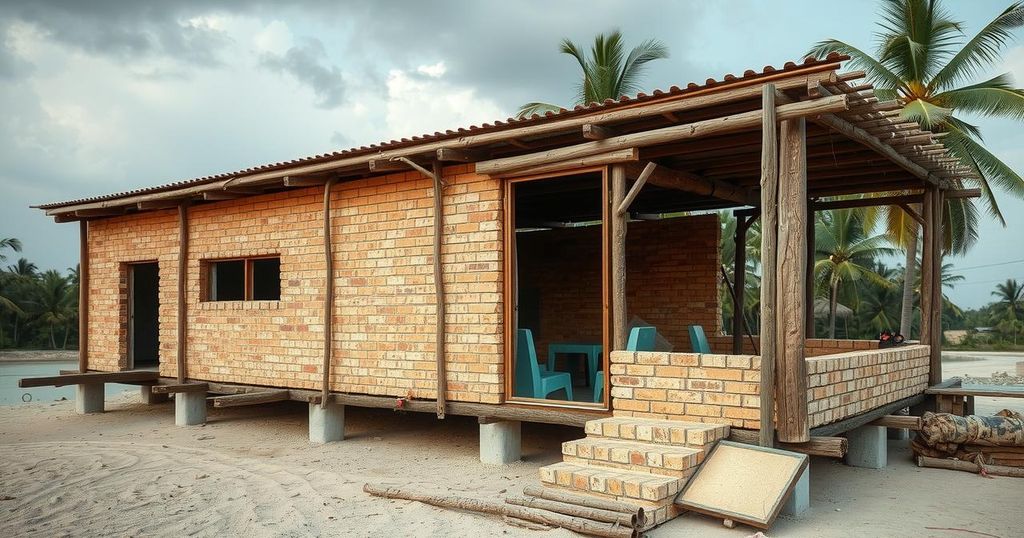Mozambique Takes Action to Rebuild After Cyclone Chido Devastation
Mozambique has commenced shelter construction for Cyclone Chido victims, which resulted in 70 deaths and significant destruction. The government, led by Minister Silvino Moreno, aims to build durable homes and enhance local construction skills. With approximately 174,000 individuals affected, the ongoing storm season raises further concerns for vulnerable communities, including exacerbation of a cholera outbreak.
Mozambique has initiated the construction of shelters for those impacted by Cyclone Chido, which recently wreaked havoc across three northern regions of the nation, resulting in at least 70 fatalities and approximately 600 injuries. During a visit to the stricken areas, Trade and Industry Minister Silvino Moreno emphasized the government’s commitment to providing necessary aid and highlighted the involvement of international partners in recovery efforts.
In the province of Nampula, one of the most affected areas, Minister Moreno stated that the primary focus is on building homes with durable materials to withstand future storms and prevent the kind of devastation seen with structures built from mud and reeds. He noted the importance of enhancing construction skills among the local population, stressing that many homes were unprepared for the cyclone’s severity.
Before striking Mozambique, Cyclone Chido had already inflicted substantial damage on Mayotte, a group of French islands, resulting in loss of life and infrastructure disruption, particularly affecting vulnerable groups such as asylum-seekers and refugees. After its passage through Mozambique, the cyclone also caused significant destruction in southern Malawi, further amplifying the storm’s impact in the region.
Mozambique’s meteorological department has warned about the likelihood of more storms during the current rainy season and has urged communities to prepare adequately. According to UNICEF, approximately 174,000 people have already been impacted by the disaster, and this figure may rise as assessments continue. The cyclone has severely affected educational facilities, destroying thousands of classrooms, and has impacted at least 20 health facilities.
Michael Chimedza, the head of UNICEF’s field office in Zambezia province, announced immediate plans to aid up to 50,000 individuals, ensuring that funds are allocated for local-level response training. The cyclone has caused widespread power outages, leaving over 25,000 families without electricity and damaging essential infrastructure, such as roads and water supply systems.
Moreover, the cyclone’s destruction has exacerbated an ongoing cholera outbreak in the region, raising concerns from humanitarian agencies regarding the potential increase in cases as a result of the latest devastation. In light of these compounding challenges, it is crucial for the government and aid organizations to mobilize resources and promote effective recovery strategies to protect vulnerable populations.
Cyclone Chido recently devastated Mozambique, inflicting severe damage across several regions and prompting government and international response efforts for recovery. Natural disasters pose significant threats to communities, particularly when infrastructure is vulnerable and poorly constructed. The aftermath of cyclones often leads to increased health risks and socioeconomic hardships, particularly in areas already grappling with issues such as disease outbreaks and inadequate housing.
In conclusion, Mozambique is undertaking urgent reconstruction efforts for Cyclone Chido victims, emphasizing the need for resilience in future housing developments. The government, along with international partners and humanitarian agencies, is working to alleviate the challenges faced by affected communities. As assessments continue, the importance of proper training and infrastructure resilience has become evident to mitigate the impact of natural disasters in the future.
Original Source: www.voanews.com




Post Comment